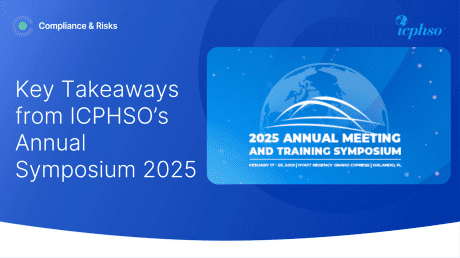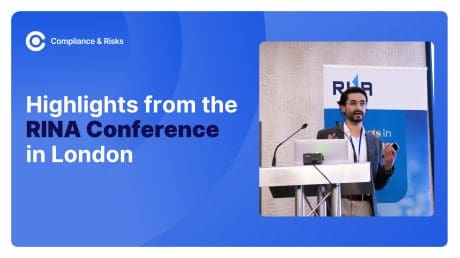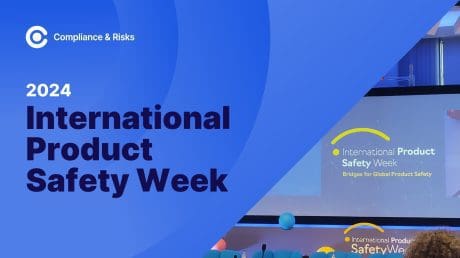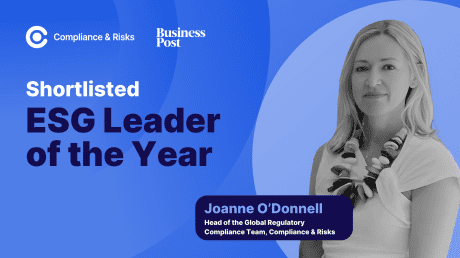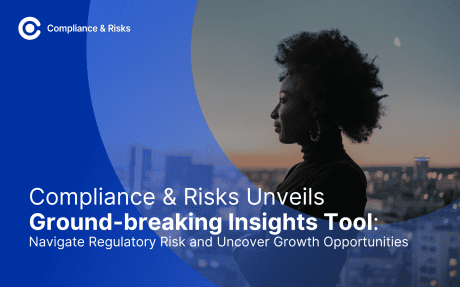
The Importance of Future-Focused Compliance Strategies

Are you a business leader struggling to navigate the complex world of compliance and risk?
In today’s circular economy, legislative moves to protect the environment and ensure sustainability can feel overwhelming due to the sheer volume of overlapping regulations and standards.
That’s where Compliance & Risks comes in. With over two decades of experience, we have honed our expertise, digital tools, and content to help global companies monitor, assess, and prove their product’s compliance in the ever-evolving regulatory landscape.
Whether you’re looking to stay ahead of the latest compliance trends, develop future-focused compliance strategies or ensure that your products meet international standards, Compliance & Risks has the tools and information you need.
But can compliance requirements actually work to a firm’s strategic advantage, especially when it comes to circularity?
Danny Cassidy, SVP of Growth at Compliance and Risks recently sat down with SGI Europe to discuss this burning question. Danny shares his insights on how companies can leverage compliance as a competitive advantage and achieve their sustainability goals, the importance of being future-focused around compliance and what that means for circularity.

Danny, a qualified engineer, is SVP of Growth at Compliance & Risks. He has over twenty years of experience in software development, professional services, and growth leadership.
With a career that spans both the Corporate and Private Equity space, Danny started in the technology sector working with Motorola where he was involved in pioneering Design for Manufacture processes. He then transitioned to the financial services industry where his passion for leveraging technology to continually drive process improvements and return on investment was fueled.
Over the past 5 years, Danny has worked with thought leaders from leading brands around the world, to create a vision for, and guide the delivery of transformative regulatory compliance programs and leverage advances in modern technology.
Why Use A SaaS Platform?
It’s a question of the growth of regulations. I used to say year-on-year growth, but now it’s month-on-month. And there’s also growth in the number of areas regulated.
Everything is growing exponentially. Single-use plastics, chemical restrictions and maybe wireless restrictions are key growth areas.
It’s not unusual for major brands around the world to use spreadsheets, introducing a strong possibility for human errors and the market access impact this can have downstream.
Many companies are still trying to operate without a digital solution, and they are struggling, and in some cases, failing.
Fines are increasing, revenue is being lost, and there is brand reputational damage from a failure to comply. What I’m hearing from SVPs is: “We don’t know what we actually need to do. There’s a lot of noise out there. Could you tell us what we have to do legally?”
We solve that problem.
Is It Possible That Compliance And Risk Mitigation Can Actually Be Seen As A Positive?
Absolutely. It allows brands to be future-focused, instead of reacting to the here and now. Focusing on the right areas while minimizing the risk to revenue.
There are so many draft regulations to monitor.
At Compliance and Risks we’re able to share with brands and advise, for example, whether a draft has an 80% probability of coming into force or only a 20 percent.
We can say, you probably don’t need to pay attention to the drafts with a 20% likelihood yet, but the ones at 80% you need to be actioning now, because in 12 months time, they’re going to be in force.
It allows companies to become proactive because they know what’s coming.
And in terms of sustainability, this in itself is going to save resources. There will be less waste in product development and scrapped prototypes. And let’s not forget, time is a resource too.
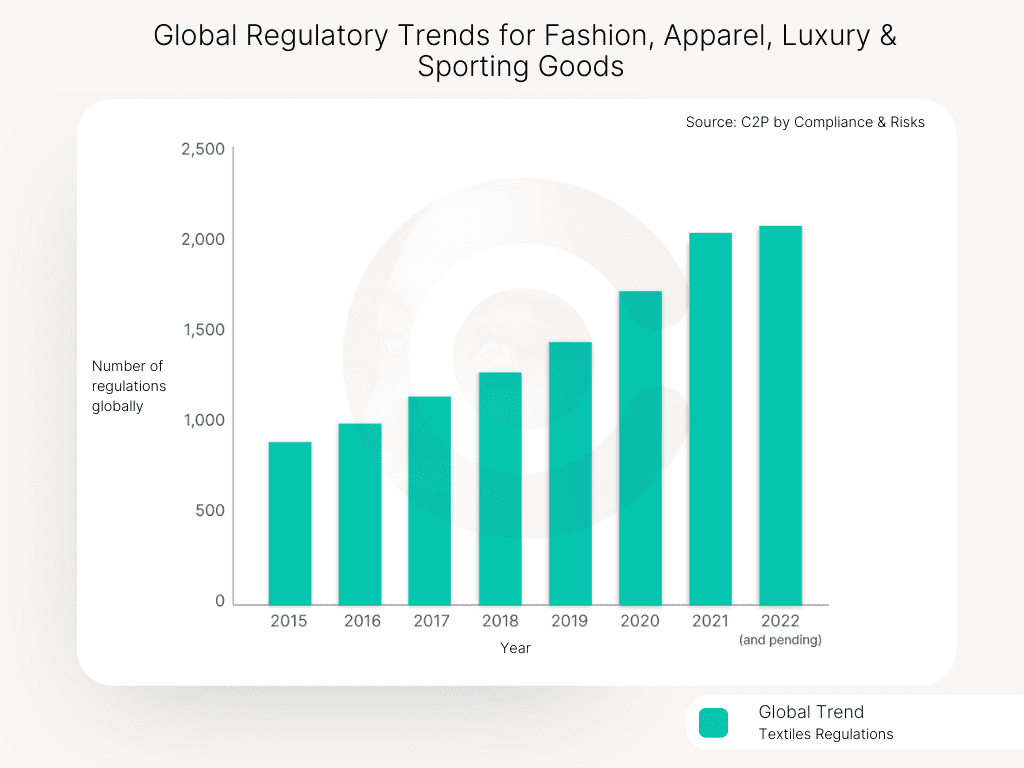
Can You Tell Me Any Of The Other Brands You Work With?
We are proud to work with some amazing global brands including Garmin, Burberry, Tory Burch, YOOX NET-A-PORTER Group Shaw, Richemont and Corelle, to name a few.
You Have 1,004 Sources On Circularity Listed In C2P, Including The EU Circular Economy Action Plan. What Is Some Other Important Legislation For The Sporting Goods Industry?
China’s Promotion of Key Consumer Product Upgrades and Smooth Resource Recycling Implementation Plan would be one.
France’s Anti-Waste and Promotion of Circular Economy Law is another.
In 2018, Compliance & Risks partnered with WFSGI To Create The Compliant Labeling Requirements Database. Can You Tell Me More About This Partnership?
That came about because there were ten founding companies working alongside the WFSGI, and each company was spending, in some cases, hundreds of thousands with legal firms all around the world in the various markets they sell to, to understand the labeling needed. All ten companies said: “Look, this is not giving us a competitive advantage. We’re all looking for the same answer.
Wouldn’t it be great if we just had a regulatory solution that we all funded together?”
And so they came to Compliance and Risks. We developed the labeling requirements solution that is now used by many other global brands.
Brands can subscribe to it at a very competitive rate compared to going through law firms.
It’s still evolving, and more sporting and fashion brands have come on board.
Consumer Demand For Sustainable Products And More Environmentally Concerned Brands Is High, Meaning There Is A Temptation Towards Empty Greenwashing Claims. Should Companies Have A Stance On This?
We hear more from Directors, VPs, and SVPs within the compliance sphere saying: “The perception of what we’re doing is sometimes more important than what is actually legislated.”
A compliance breach will have some impact, but if the consumer perception is that a brand is not taking things seriously – that they’re just pretending to do the right thing – and they get caught…That breach of consumer trust is very difficult to recover from.
In the last ten to fifteen years companies have been voluntarily disclosing their carbon footprints, for example.
But what the EU Commission has done – and actually many other countries around the world outside of that jurisdiction – is to crackdown on greenwashing.
First, it’s not a choice anymore; brands have to disclose. And second, they’re enacting measures to tackle unfounded green claims with proposals to amend the Unfair Commercial Practices and Consumer Rights Directive, for example.
On a much more practical, legal level, our evidence management capabilities in C2P allows companies to prove they fulfill sustainability criteria: Not just because it’s needed for shipping and selling in multiple markets around the world, but because stakeholders demand it.
C2P becomes an audit trail. If you take a waste-management perspective, brands can say to investors, shareholders, and auditors: “Here’s the training policy we’ve rolled out. Here are the people who have undergone training. Here are the moments which have unfortunately breached the policy during our audits. Here’s the corrective action we’re taking to make a better policy.”
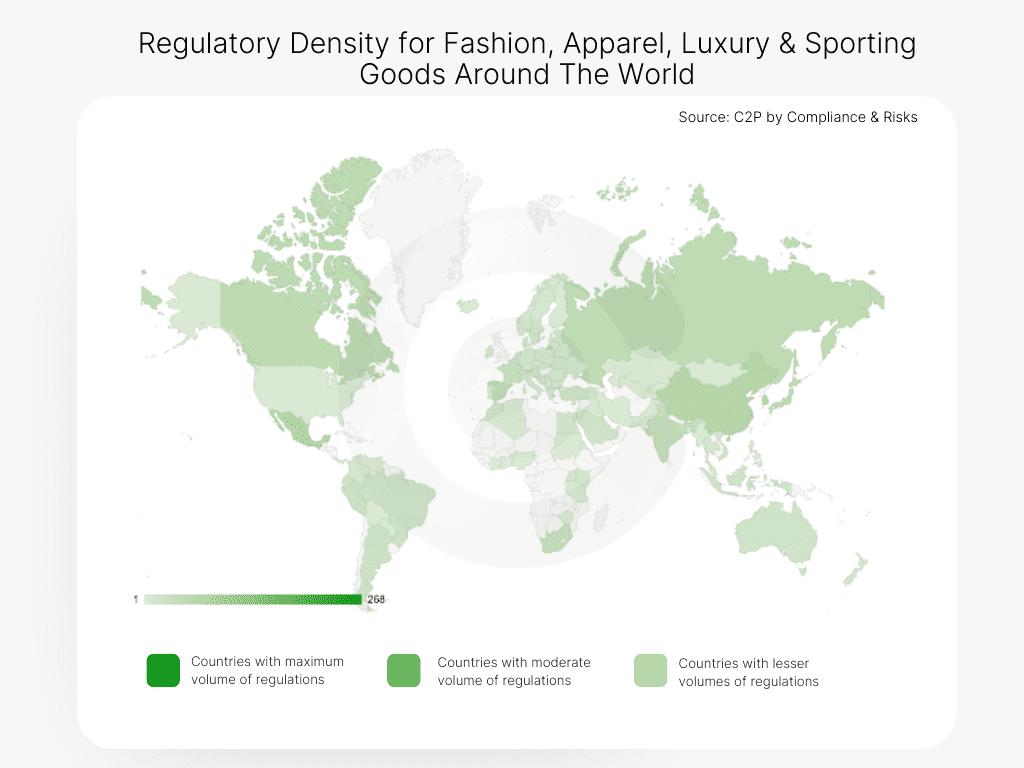
Is Circularity Important For You As A Business? Do You Consider Circularity In Your Own Work?
Absolutely. About nine months ago, the EU Commission funded a research project to help manufacturing companies understand how to deal with diminishing levels of essential raw materials. How are we going to produce more fitness wearables, for example, when the demand is increasing but actually the critical raw materials to make the batteries in these products are running out?
The concept of a Product As A Service model, where you no longer buy a product and instead rent one, is being carefully considered from a regulatory perspective and we are partnering with the EU Commission on this.
We are also building our own ESG pledge right now and involving our whole team in the process.
The work we have done in developing our ESG solution to help global brands simplify how they report on their ESG obligations has got us thinking hard about our own perspective on this. It’s important for us as a business.
With changes in buyer behavior, issues of greenwashing, and the increased focus on climate change, sustainability is at the forefront for consumers, investors and regulators.
Our mission is rooted in ensuring global organizations have the latest information to build safe, sustainable products in a world full of change, and our recently launched ESG solution helps global organizations meet the new regulatory obligations.
The expanded ESG offering is our next step in fulfilling this mission.
At its core, our solution ensures organizations can save time, avoid delays and improve efficiency by having all mandatory ESG reporting regulations at their fingertips.
Unlocking Market Access
Accelerate your ability to achieve, maintain & expand market access for all products in global markets with C2P – Your key to unlocking market access, trusted by more than 300 of the world’s leading brands.
C2P is an enterprise SaaS platform providing everything you need in one place to achieve your business objectives by proving compliance in over 195 countries.
C2P is purpose-built to be tailored to your specific needs with comprehensive capabilities that enable enterprise-wide management of regulations, standards, requirements and evidence.
Add-on packages help accelerate market access through use-case-specific solutions, global regulatory content, a global team of subject matter experts and professional services.
- Accelerate time-to-market for products
- Reduce non-compliance risks that impact your ability to meet business goals and cause reputational damage
- Enable business continuity by digitizing your compliance process and building corporate memory
- Improve efficiency and enable your team to focus on business critical initiatives rather than manual tasks
- Save time with access to Compliance & Risks’ extensive Knowledge Partner network
Sign Up To Our Newsletter
Join 30,000+ compliance professionals for updates on hot compliance issues and more!
